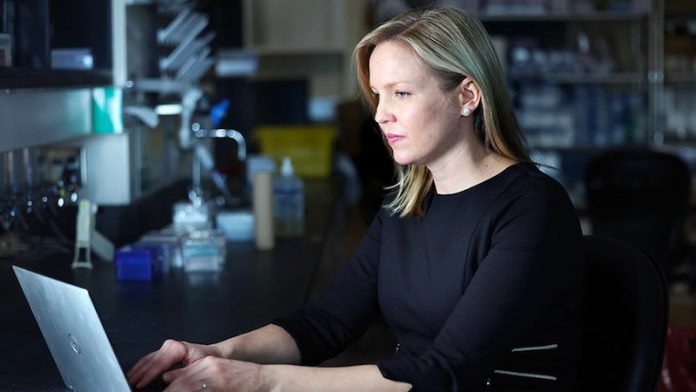
In a new study from the University of Michigan, researchers found genetics play an important role in how our bodies respond to vaccines and booster shots, suggesting that certain protective responses elicited by vaccination could be more effective with personalization.
The team also identified a particular form of an antibody-related gene that predicts, at a population level, whether boosting to produce more antibodies will be effective for increasing innate immune responses.
The study explored how people may respond differently to conventional boosting, which reexposes the immune system to the virus (or some portion of it) to increase antibody concentration.
However, in some people, the increase in antibody concentration may not matter as much because their genes encode for immune receptors that aren’t as good at sticking to the antibodies—they’re said to have a lower affinity.
As a result, a person can have a respectable antibody count and still have a poor immune response.
So one theoretical alternate immune-boosting route could be to design vaccines that tweak the structure of the antibodies—making those antibodies more likely to stick to a person’s immune cell receptors.
The team says depending on your genetic background, vaccine boosting may be more or less effective in activating certain innate immune functions.
And in some people, where boosting the concentrations of antibodies was ineffective, being able to change the affinity of antibodies could be the more successful route.
The team created a computer model to determine how different genetic factors influence innate immune responses induced by vaccine boosting.
It uses data and plasma samples obtained by the University of Melbourne from the only moderately protective HIV vaccine trial to date.
The plasma samples from trial participants—basically blood samples minus the red blood cells—showed the amount and type of antibodies produced after vaccination.
In a mixed population of people, they found how one specific genotype would drive whether that population was responsive to changes in antibody concentrations expected from traditional boosting.
The team showed that, in a gene that encodes for a specific type of antibody (IgG1), different variations can predict how effective boosting to increase antibody levels will be in a given population.
The findings highlight why certain vaccines influence people differently. In the future, the study could lead to new design principles for vaccines that take an individual’s personalized characteristics into account.
If you care about Covid, please read studies about the key to curing COVID-19, and familiar drug that may help treat COVID-19.
For more information about Covid, please see recent studies about two paths toward ‘super immunity’ to COVID-19, and results showing that CBD from cannabis may inhibit COVID-19 infection.
The study was conducted by Kelly Arnold et al.



